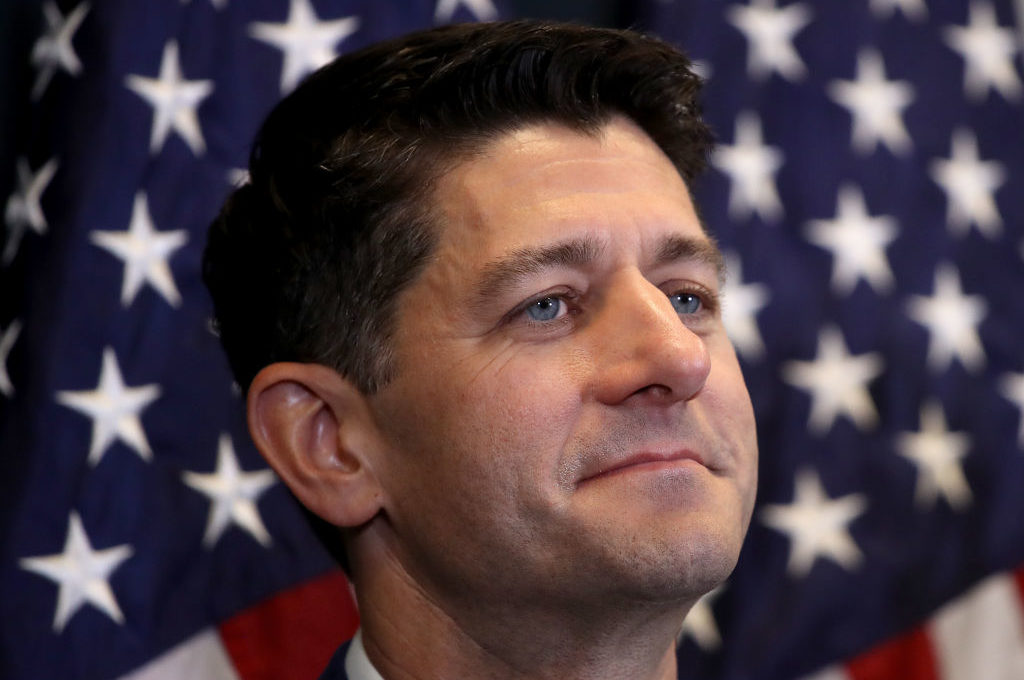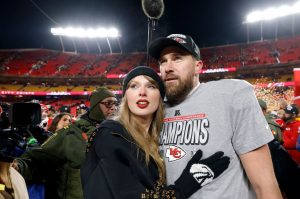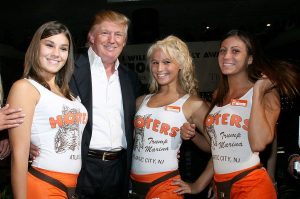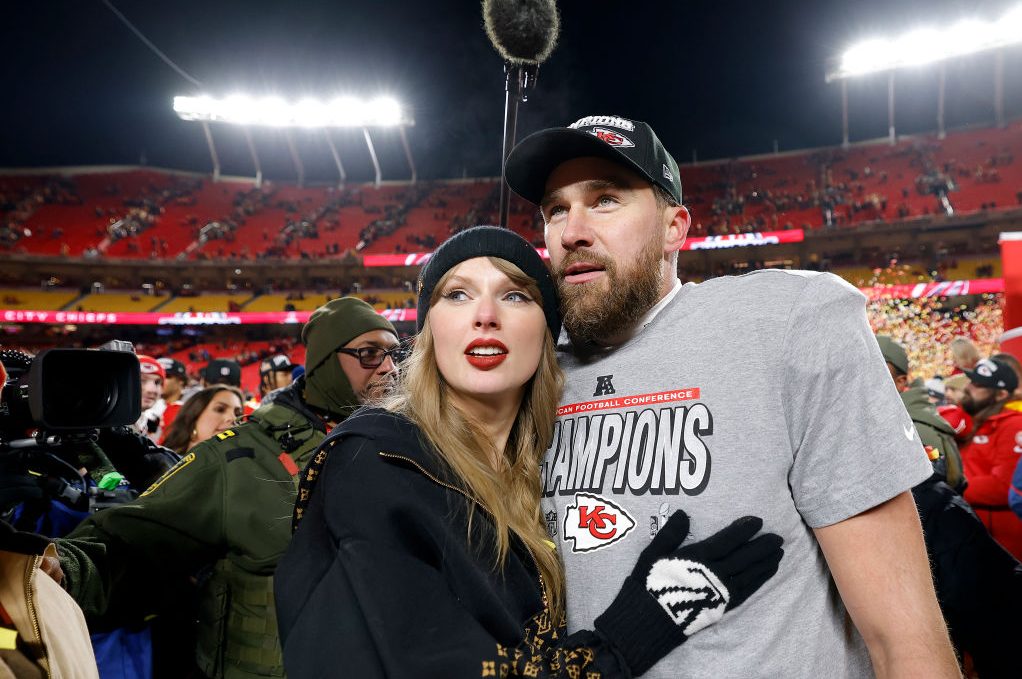After whispering a prayer to St Ronald Reagan, Paul Ryan rose to his feet, solemnly kissed his bible, Atlas Shrugged, and gave a speech at the Gipper’s presidential library in Simi Valley about the perils of personality cults.
Though the former Republican House speaker did not attack Donald Trump directly on Thursday, it was obvious who was on his mind.
‘If the conservative cause depends on the populist appeal of one personality, or on second-rate imitations, then we’re not going anywhere,’ Ryan said. And if the conservative movement fails, he warned, ‘it will be because we gave too much allegiance to one passing political figure, and weren’t loyal enough to our principles’.
Ryan also called the audience away from the culture war. ‘Culture matters, yes, but our party must be defined by more than a tussle over the latest grievance or perceived slight.’ If only the GOP tussled at all.
Trump’s rise resulted, in part, from the party and the movement’s failure to conserve much of anything apart from the happiness of donors. Indeed, GOP support for Bruce Jenner’s gubernatorial run shows they’re not even willing to preserve the reality of biological sexes.
Ryan’s speech evoked the portrait of an impotent grown in a ‘Petri dish at the Heritage Foundation’, as Steve Bannon once put it. Trump swiftly counterpunched his passive-aggressive jabs. ‘As a Republican, having Paul Ryan on your side almost guarantees a loss, for both you, the party, and America itself!’ the former president said.
However, the entire affair is as ironic as it is revealing. Consider that the Tax Cuts and Jobs Act — the cornerstone of Trump’s legacy — was actually maneuvered through Congress by Ryan.
It also happened to be one of the least popular pieces of legislation in recent memory. But, as a former Trump official told the Washington Post, ‘Paul Ryan and these guys had waited 30 years for this once-in-a-lifetime chance to cut taxes.’ You wonder if that helped guarantee Trump’s loss in 2020.
Trump staffed his administration with Ryan allies from Mike Pence to Mick Mulvaney. Even now, the former president elevates his enemy’s associates.
Ryan’s speech was the first in a series about the future of the GOP. The lineup of those who will help determine the party’s direction includes potential presidential candidates Pence, Mike Pompeo, Nikki Haley, and Sen. Tim Scott of South Carolina. All are veterans of the Trump administration or are endorsed by the man himself. They’re also friends and allies of Ryan and just as opposed to the populist agenda that won the White House in 2016.
Even Trump’s handpicked replacement for Liz Cheney, New York Republican Rep. Elise Stefanik, is an adoring Ryan protégé who voted less consistently with Trump than Cheney on signature issues like immigration.
At this rate, the GOP has little hope for the future beyond winning elections based on how frustrated Americans are with Democrats because it lives in a fantasy of the past and present.
As conservative sociologist Robert Nisbet noted, though Reagan is now the patron saint of limited government, the Gipper presided over the largest budget increases and the largest budget — and trade — deficits in American history. Nisbet estimated the size of the federal bureaucracy grew by 13 percent under Reagan, ‘with not one significant bureau or department, not even Energy or Education, despite promises, dropped’.
Ryan is much like Reagan in this regard. Because though he loves to rail about fiscal responsibility, his legacy is overseeing under Trump the largest increase in the national debt since World War Two.
There is, however, good news and a path forward to prevent the battle for the soul of the GOP from being reduced to a mere dispute over prestige, privileges, and donors.
Virtually no national constituency exists for what impotent Ryan, hawkish Cheney and obnoxious Rep. Adam Kinzinger have to offer. However, consistent with broader trends, most younger white, Hispanic and lower-income Republicans lean populist in their economic preferences. Trump showed in 2016 that a socially conservative, economically liberal platform is the key to the future.
The problem is the GOP has captured the insurgent populist movement of 2016 and is working to denude it of its anti-establishment, oppositional character by convincing voters that with Trump as figurehead, something has fundamentally changed. But a closer look at the coterie of Ryan associates in Trump’s orbit shows that’s not really the case. The solution is as clear as understanding why Trump won in 2016, why he lost in 2020 and finding or creating leaders willing to carry forth the torch against their own party.

























